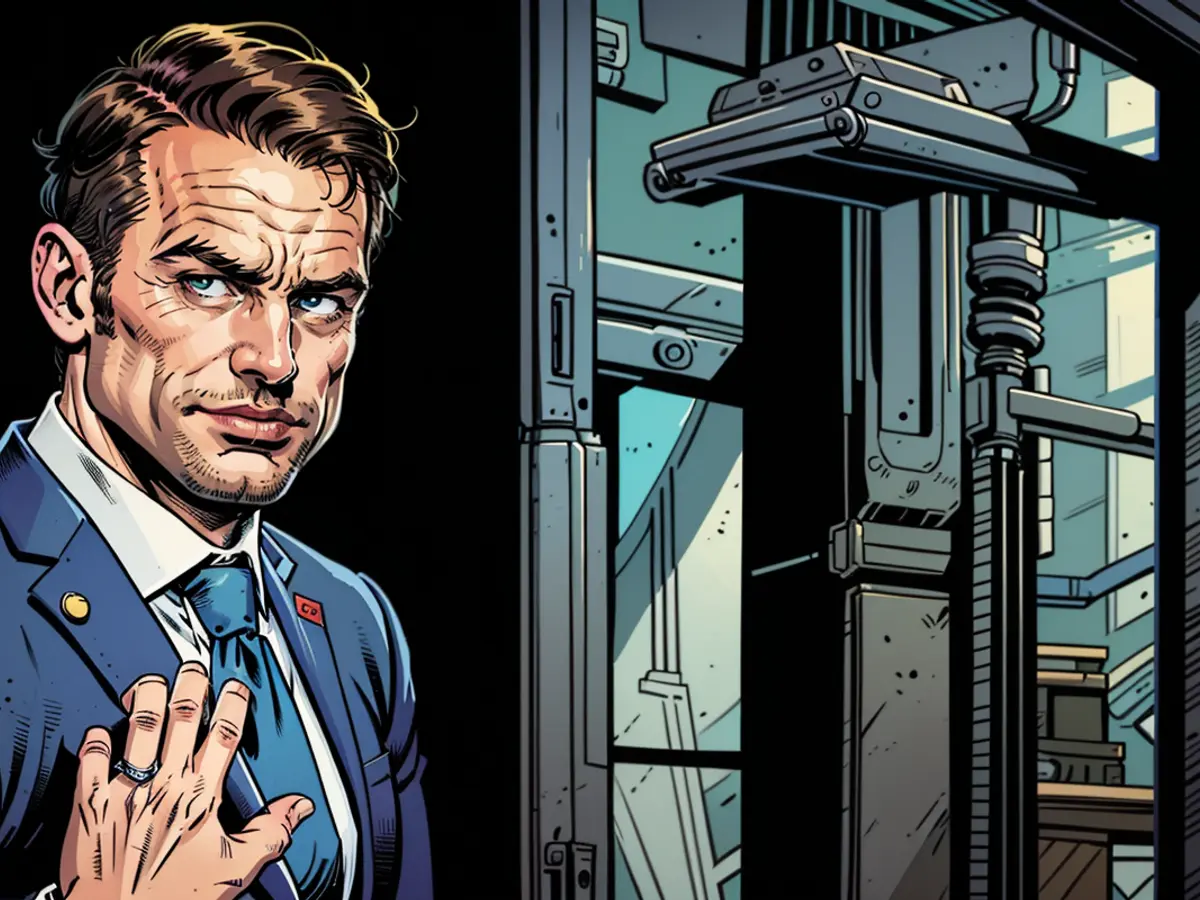Macron's last hope is the left
In the future, whoever leads France's government will have to make a decision in the second round. To exclude the Right-wing populists of Le Pen's RN party, President Macron has few options. The most promising one is a collaboration with the leftist alliance - an option Macron is skeptical about.
The National Rally (RN) celebrates its electoral success in France. For the first time, the Right-wing populists secured a majority in the first round. The record result of 29.3% of the votes makes RN leader Marine Le Pen already elated about the upcoming government change. "Democracy has spoken," Le Pen said after the election. "The French want to write a new chapter." However, it's not over yet. Although the liberal camp around Emmanuel Macron has been weakened, coalitions with the Left could be formed in the second round to counter Le Pen.
Macron's camp finished third with 20% in the first round. The second-placed was the leftist coalition "Front Populaire," which trails the RN by 28%. Now, Liberals and Leftists are discussing a cooperation. Representatives of both sides have announced that they will withdraw their own candidates in districts where another candidate has better chances of defeating the far-right.
The majority rule in French elections opens up opportunities for horse-trading. A seat in the National Assembly can only be secured by a candidate on the first election day if they receive more than half of the votes. This was achieved by only 39 RN candidates and one allied conservative Republican. In all other constituencies, the far-right candidates must face a runoff. In these runoffs, the two top candidates from the first round face all the constituency candidates who received more than one eighth of the votes.
Macron's camp considers Melenchon's party a threat
Normally, parties reach agreements before the second round, resulting in only a few candidates per constituency. Now, the Left and the Liberals are discussing which party should withdraw candidates in which constituencies. They have until Tuesday evening at 6 PM to make their decisions.
The leftist "Front populaire" includes Greens and Social Democrats, as well as the Left-populists from "La France insoumise." The coalition is already extending its hand to Macron's camp. "Our guideline is simple and clear: not a single vote more for the Rassemblement National," said Jean-Luc Mélenchon, founder of "La France insoumise." Macron also called for supporting only candidates who are "clearly republican and democratic" in a press release.
However, Macron has reservations about Mélenchon specifically. These reservations are justified: Mélenchon not only criticizes the European Union and NATO but is also accused of harboring prejudices against Jews. This became apparent during the 2022 presidential elections. Mélenchon even alienated politically close associates with his anti-Semitic remarks.
The Left and Liberals could form alliances in 119 constituencies
Among all those Macron supporters who openly advocate for a pact with the Left, critical voices are emerging. Finance and Economy Minister Bruno Le Maire warned on France Inter radio against a victory of the Left Alliance, which he described as a "danger." He would encourage voters to choose candidates from left-wing parties in districts where a centrist candidate has dropped out. However, he would "never" urge them to vote for Melenchon's party. Premier Minister Gabriel Attal also issued a stern warning against a victory for both the Right and the Left.
If the Left and Liberals manage to reach an agreement, they have the chance to deprive Le Pen's party of an absolute majority. According to the French daily "Le Monde," in 129 constituencies where the RN leads, third-placed candidates from the left-wing alliance could withdraw in favor of other democratic parties. The same applies to candidates from the Macron camp in 90 constituencies. A victory for the RN in the second round is still possible in these constituencies.
If the RN obtains an absolute majority, Macron would be obliged to appoint Jordan Bardella as Prime Minister. A collaboration between Macron and Bardella would be difficult. Bardella would be responsible for day-to-day affairs and domestic policy matters. Macron would retain the decision-making power over foreign and defense policy. Among Macron's supporters, there is growing concern that he could become politically ineffective.
Even if none of the parties reach a majority, France faces a political crisis. The National Assembly would be fragmented and paralyzed. Macron cannot dissolve the parliament until 2025. This would provide an opportunity for the right-wing populists to further stir up anti-Macron sentiment in the country.
In light of the upcoming second round, President Macron's camp views Jean-Luc Mélenchon's party as a potential threat due to their shared goal of excluding Marine Le Pen's Right-wing populist RN party. Despite Macron's reservations about Mélenchon's anti-Semitic remarks, discussions of potential alliances between the leftist "Front populaire" and Macron's camp are underway in 119 constituencies, aiming to prevent RN from securing an absolute majority. If successful, these alliances could potentially deny Le Pen's party the opportunity to appoint Jordan Bardella as Prime Minister, potentially causing a political standstill if no majority is reached.








